#RDN Day
Text
Regular Date Night /pos
#willow's whispers#oohhhh the best and only mod ever...........#it's a real shame i never drew anything for it when it first released#considering it was literally the ONLY thing occupying my brain for the first three days#i mean i still doodled some things but it's not the same know?#one of these days i will draw a pretty and polished drawing of RDN and i'll be very happy and proud about it!! yea!!!!!!!!
1 note
·
View note
Note
I went diabetic earlier this year, since then I've had far more serious health concerns to really focus on it. I've listened to my primary care and reduced my average a1c from 13 to 7. I've recently been looking into diets and what not that are the best. Currently, I'm trying to cut out all carbs, on my doctor's orders. What I'm seeing though is that a plant based diet is best. It looks like a ketogenic diet is what my doctor wants me to follow? I've watched videos on both diets and I don't know, I agree with you that keto is evil. What are your thoughts about this?
I am not a medical professional so i can't give you medical advice, but I'd say that you should ask your doctor for a referral to a dietician (an RD or an RDN, NOT a "nutritionist" - RD/RDN are protected terms that mean they have completed specific training and have specific board certification) and ask the dietician for advice on your specific dietary needs for your specific medical conditions.
What I can say is that trying to cut all carbs is pretty dangerous - not only is it a macronutrient that our body uses as the most available fuel for your body processes (we *can* get fuel from protein and fat, and ketones can *theoretically* replace sugars for energy but nobody is actually sure how long our bodies can do that and we know it's a LOT less efficient, it's supposed to be less efficient, and what that means is it makes a lot of people feel exhausted when they try it because they literally have less available energy) but also there are certain nutrients that are fortified in the US that are going to be hard to get if you're cutting carbs completely. The example that I always use is folate, because when I had to cut wheat out of my diet (i have grain allergies and celiac disease) I didn't know to supplement it and ended up with a form of anemia and stuff like "fainting" and "dizziness" and "low oxygen saturation."
Which is part of why massive diet changes should be undertaken with the assistance of a dietician! That's why I started studying nutrition! Because nobody supervised my medically necessary diet changes and it went very poorly!
Your GP very likely doesn't have a ton of training on nutrition, and is even less likely to have training on nutrition specific to your condition. If your GP is telling you to cut all carbs, they are telling you to do something dangerous and not nutritionally sound (even really restrictive keto diets call for 20g of carbs a day). Ask either them or your endocrinologist for a referral to a dietician (again, you are looking for a Registered Dietician or a Registered Dietician Nutritionist, RD or RDN, NOT just 'nutritionist') who is familiar with helping diabetics manage their nutrition.
Now, all of that said, in the choice between two fairly restrictive diets I will always say to try the one that requires less effort. It is much easier to eat a plant-based diet long term than a keto diet, and it is vanishingly unlikely that you are going to end up protein deficient (the primary concern for most people who are starting plant based diets, and it's just not all that likely - we need a lot less protein than a lot of people seem to think; though if you're going completely vegan you do need to be careful to supplement your B vitamins and to ensure that you're getting plenty of omega fats)
Because the thing is, for a diet to "work" you have to be on that diet forever. If you stop being on that diet, and stop adhering to its restrictions, whatever benefits exist for that diet go away. So the best diet for *anybody* is one that will provide them with the nutrients they need in a way that they can access regularly and affordably, that they enjoy eating and can comfortably maintain for long periods of time, and that includes a variety of fruits and vegetables because the only diet advice that is nearly universally applicable is that people should be eating more fruits and vegetables and they should be eating a wider variety of them.
I am not a fan of "diets" as a concept and I think that people should think of nutrition in terms of "my diet" not "the diet that is meant to be one-size-fits-all for millions of people that I am attempting." Your diet is what you eat and drink, and that is what you should be looking at adjusting. If you want to reduce carbs in your diet it's better to tweak your consumption than it is totally replace your diet with a one size fits all keto diet. If you want to increase fat in your diet it is better to tweak your consumption than it is to replace your diet with a one size fits all atkins diet. If you want to go plant based I think it is better to start by adjusting your diet to include more plants and to slowly replace animal based products than by trying a one size fits all vegan diet right out of the gate. You can always (and should!) make adjustments to what you eat as circumstances change and you may end up at a vegan diet or a low carb high fat diet and find that that works for you, but part of the reason that I think nutrition studies on diets are so screwy and hard to pin down is because your body is going to *flip the fuck out* when you change from, say, an average american diet to a study-provided Mediterranean diet for a 12 week experiment. If you drastically change your diet all at once and get good results immediately it's very hard to say if those results will be lasting because your body may just adjust to the "new normal" of your diet six months down the line.
But like seriously if your GP is telling you to cut all carbs you need to see a person who specializes in nutrition, and to prepare for your appointment with that person you should make a list of your goals (for you it sounds like you want to manage your blood sugar levels, reduce a1c, and *ask about* low carbs if that is something that interests you), a list of things you think that you'll have trouble with or that you want to include in your diet because they're important to you (if you really like nuts but have to be on a low fat diet, ask if there's a way to work around that with your needs, for example; if there is a cultural staple that you will find difficult to cut from family meals, TELL THEM THAT), a list of questions that you have about different types of diets, and *VERY IMPORTANTLY* information about your food budget and cooking skills. Be clear about it if you can't cook. Be clear about it if you can't afford certain ingredients.
Anyway. Once again, not medical advice, please speak to a medical professional, good luck.
193 notes
·
View notes
Text
RDN GOS Will Wright Birthday 2020 (Conjunto Para Lots Comunitários Comerciais e Hotéis The Sims 2)



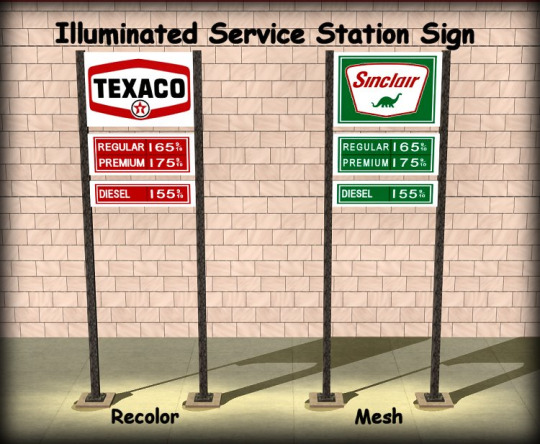



Você Pode Encontrar Esse Conjunto Aqui:
Founder's Day 2020! (gardenofshadows.org.uk)
#the sims 2 download#Commercial Hotel and Community Lots Set Ts2#for commercial hotel and community lots ts2
8 notes
·
View notes
Text
☁️ Current Life Update ☁️
Just wanted to provide an update here as I know I’ve gotten quiet again. Anyone who knows me personally knows I don’t make excuses and don’t like to procrastinate. I’m pretty organized and love sticking to a schedule. No one has accused me of being either and I know my personal life and health (mental and physical) take precedent but I’ve always been one who feels the need to explain things and share updates because I’ve gained a bit of a following and the last thing I want is for anyone to think I’m abandoning these works or just screwing around.
Again, I know, I know, I don’t have to justify this and you all are always supportive and understanding but I also believe in transparency and my own personal accountability. It’s a little lengthy but here we go.
Shortly after I posted my last posting schedule, I was supposed to be taking a few days off from work. I am very susceptible to burnout and could feel myself getting too in my head, struggling with remembering to eat, not getting enough sleep, etc. That very first day of my break we had a very unexpected family emergency and I was the only person who was able to help. I’m an introvert by nature and while I do love my family, I really enjoy my time to myself and I try to prioritize that alone time because it’s integral in helping me prevent burnout.
This sudden emergency brought a familiar but sudden change that I wasn’t prepared for and immediately lost all of my days of my mini break to having to socialize and extend more of myself that I didn’t have to give away. That shot my mood down tremendously and further exacerbated negative feelings and thoughts that I was hoping to get away from. I stopped eating entirely and was averaging a few hours of sleep and was immediately thrust back into working.
After some much needing venting and conversation with my RDN and my therapist, I started to gather myself back together. Writing was resuming and I didn’t feel great but I did feel a little more like myself. About a week ago I started feeling under the weather but brushed it off, took some medicine and tried to keep pushing through it. It didn’t work. Despite taking medicine and trying to rest and eat properly, I noticed I wasn’t getting better and was gradually getting worse. Finally decided to go to the doctor and found out that I have pneumonia so of course my measly meds weren’t working and got switched over to some antibiotics.
So that’s where we are currently. Mentally, I still feel a little off but I’ll get there and was able to schedule some more time off next week. I have been writing in between where I can but nowhere near as much as I would’ve liked. Today’s feels the best so far but even now I’m probably only about 40%.
Again, I know an explanation isn’t really owed but I don’t like leaving you all hanging without hearing something from me. It feels like every time I get back ahead of things, something gets in the way and it makes me feel worse because it seems like I’m doing more updates on why I’m not writing than updates on new chapters.
If you managed to sit here and read all of this, I applaud you and appreciate you for doing so. I’m hoping that whatever this horrible spell is that I’m going through right now ends swiftly. I love writing these stories and I love sharing them with you all and I really want to get back to it more than anything. Sorry for the long post but you all are amazing and deserve to know what’s going on.
Thank you,
Your Friend Cloud 🩵
2 notes
·
View notes
Text
Weight loss diet
2 Eating Habits That Drastically Change Your Weight Loss Efforts, Say Dietitians
When it comes to weight loss, you want to focus on maintaining a healthy and happy lifestyle, not just drastically shedding pounds. Weight loss is achievable by many different ways, including exercise and or practicing self-care. Your drinking and eating habits can also affect your weight, and it's important to keep up with your practices.
Sometimes, your weight loss journey may feel like a dead-end, and you want to try and switch your routine in order to keep persevering on your goals. The good news is that there are eating habits that can help you continue your process. The Nutrition Twins, Lyssie Lakatos, RDN, CDN, CFT, and Tammy Lakatos Shames, RDN, CDN, CFT, who are also members of our medical expert board, gathered their insight to help create
1 Divide temptations into single portions and place them in the freezer
Buying produce and other perishables in bulk may make for a successful grocery shopping trip but it forces you to eat everything before the products expire. That's why The Nutrition Twins recommend that when you come home, immediately divide any food that you find tempting into single portions and place them in the freezer.
"Because frozen food requires defrosting, impulse eating will be prevented and willpower is taken out of the equation," say The Nutrition Twins. "This simply requires a plan! Know that you're only having one—and take one serving out to defrost."a list of eating happens that can help drastically change your weight loss efforts.
Seeing your food intake on paper may give you a whole new perspective on what you're eating and how much of it you're eating. Keeping a food diary or journal helps log your food consumption throughout the day.
2 Write down what you eat.
The Nutrition Twins say that research shows that people who record what they eat lose twice as much weight as those who don't. It will hold you accountable and make you aware of what you've eaten. In the particular study of approximately 17,000 people, those who kept daily food records lost twice as much weight as those who kept no records,
2 notes
·
View notes
Text
4 strategies to stop blood sugar swings and avoid that afternoon crash
Unless you have diabetes, you probably don’t give much thought to how your blood sugar changes throughout the day. You’d be wise to pay more attention: While some fluctuation is normal, many people experience major spikes and dips, which can sap your energy, derail your focus, and lead to weight gain, says Grace Derocha, MBA, RDN, CDCES, a dietitian and spokesperson for the Academy of Nutrition and Dietetics who specializes in workplace wellness.
Perhaps even more concerning is the fact that high glucose variability—meaning you have a significant gap between your highs and lows—has been tied to an increased risk of insulin resistance, or the inability to use insulin efficiently, which often paves the way for type 2 diabetes. Wide glucose variability may also increase your odds of having heart attack or stroke, according to a 2020 study published in Cardiovascular Diabetology.
How to get off the rollercoaster? For otherwise healthy people (who don’t have diabetes), it largely comes down to making some key lifestyle changes, starting with what you eat. These four smart strategies can help even out your blood sugar so you feel better and stay healthier.
1. Watch out for surprising sources of sugar
You likely know that candy, pastries, and heavily-sweetened drinks (including soft drinks and various coffee concoctions) can all send your blood sugar soaring. But anything carb-heavy, even if it doesn’t contain added sugar or taste sweet, has the potential to cause a similar effect. Watch out for refined (white) breads and highly processed cereals, which are easy to overdo.
Bottled salad dressings and condiments like ketchup and barbeque sauce also often pack a surprising amount of added sugar, as do many plant-based milk alternatives. Be sure to read labels, and pick accordingly—especially if you tend to drown your salad and like your coffee extra light, warns Derocha.
Fruit is another potential offender, especially if you choose the dried variety or super-size your servings. “One of those little boxes of raisins is probably equal to 15-20 regular grapes” as far as (natural) sugar content is concerned, says Derocha.
Whole fruit is generally a better bet, but that doesn’t mean you should eat unlimited amounts when it comes to higher-sugar options like grapes, bananas, watermelon, and mango. “People think, ‘It’s fruit and it’s healthy for me, because it has a lot of fiber and vitamins,’ and that’s true,” she says. “But I had a patient that used to freeze grapes and eat the whole bag.”
2. Eat fiber first
It might sound gimmicky, but there’s good evidence that simply changing the order in which you eat your food makes a big difference in terms of the impact it has on your blood sugar, says Jessie Inchauspé, a biochemist who studies the effect of food on health. Even if you don’t change the components of a meal—say, pasta, chicken, and vegetables—eating the vegetables first, followed by the protein and finally the carbs—can cut the resulting glucose spike substantially.
“We often talk about what to eat or not eat, but this is about how,” she explains, echoing advice shared in her new book, Glucose Revolution, and on her popular Instagram page. She points to several studies, including a 2018 research from the Journal of Nutritional Science and Vitaminology in which subjects were instructed to eat the same meal of rice, vegetables, and meat after an overnight fast on different days; when eating rice last, glucose and insulin levels were significantly lower 30 minutes after the meal than they were when they ate the rice first.
Fiber, Inchauspé explains, coats the upper intestines and creates a mesh that prevents the body from absorbing too much glucose from the rest of the meal. Protein and fat also help slow movement of food through the gastrointestinal tract, so by the time the carbohydrates enter the body they don’t flood the bloodstream with glucose as dramatically.
For bonus points, she advocates starting meals with an additional vegetable dish, such as a salad, and drizzling on some vinegar: “It can curb a glucose spike from a subsequent meal by up to 30%, because the acetic acid in the vinegar slows the breakdown of starches into glucose,” she says. “It also goes into the muscles and tells them to soak up more glucose” from the bloodstream.
“I was actually shocked when I learned this about vinegar,” she says, but “clinical trials have shown how it can impact your health from a glucose perspective.”
3. Be carb-consistent throughout the day
Going low-carb at breakfast and lunch for the express purpose of splurging at dinner doesn’t work if your goal is to keep your blood sugar steady. “You can’t bank carbs,” says Derocha. The best way to keep your blood sugar on an even keel is to have a similar amount of carbohydrates during each of your three meals (or, if you prefer, five mini meals).
On a similar note, while a sweet treat might seem most appealing mid-afternoon or late at night, the best time to give into that ice cream or cookie craving is actually right after you’ve finished eating a meal that contains some protein, fat, and fiber. Not only will you eat less of the treat,, but the other nutrients you just consumed will help blunt the impact on your blood glucose level and the impact won’t be as great as if you indulged on an empty stomach. For the same reason, consider starting your day with a savory (rather than sweet) breakfast, says Inchauspé.
4. Move after meals
To avoid a major post-meal blood sugar spike, resist the urge to lounge on the couch after dinner. Instead, do something moderately active for at least 10 minutes, says Inchauspé. The goal is to activate your muscles so they’ll seek out glucose from your bloodstream and utilize it rather than letting it linger there.
Indeed, numerous studies support the importance of moving after meals, including a 2021 meta-analysis published in the journal Sports Medicine; the authors concluded that 30 minutes of aerobic activity in the postprandial state is ideal for decreasing glucose and insulin levels in healthy adults. Derocha also points to research that found people with fasting blood sugar readings in the prediabetic range were able to modulate their high blood sugar simply by walking for 15-minutes three times a day (after each meal). “Even just cleaning up the dishes or folding laundry will provide some movement that helps lower blood sugar,” she says.
6 notes
·
View notes
Text
How to make the keto diet healthy
Assuming you're attempting to get thinner you've most likely caught wind of the keto diet frenzy that has been stirring things up around town throughout the previous few years. The keto, or ketogenic diet, is a high-fat, extremely low-carb diet that claims it can assist you with shedding fat quick and, surprisingly, switch diabetes. In any case, the inquiry is, will stacking up on high-fat food varieties assist you with shedding pounds? Furthermore, is it beneficial to "cut out" carbs?
⚡️Click here now to get The Ultimate Keto Meal Plan⚡️
Thus, whether you're just interested about attempting keto or quick to bounce solidly in, this is a must-understand article.
History of the keto diet
A while back Dr. More out of control, a specialist at the Mayo Facility, fostered the ketogenic "keto" diet to treat kids with serious epilepsy. From that point forward, the keto diet has been effectively utilized all over the planet to treat drug-safe epilepsy. During the 1970s, the eating routine became famous for weight reduction because of the Atkins diet, which launch keto into the weight reduction spotlight. While the Atkins diet suggests gradually once again introducing starch containing food sources once again into your eating plan, the keto diet rigorously restricts these food sources consistently.
What is the keto diet?
The keto diet regularly restricts carbs to under 50 grams each day (that is the thing you'll track down in only one bagel!), with the leftover calories coming generally from fat and a moderate sum from protein. Jason Ewoldt, RDN, LD, a wellbeing dietitian at Mayo Facility Sound Living System makes sense of, "When you change to a high-fat, low-carb diet, your body, by need, moves from consuming carbs (or glucose) for fuel and on second thought involves fat for energy. This interaction is called out to ketosis — subsequently the eating routine."
At the point when you consider the typical American eats 248 grams of carbs a day, and that the vast majority of these carbs are coming from profoundly handled and refined grains, it's not shocking weight reduction happens when you cut out a lot of pop, white flour and heated products.
Anyway, what does high-fat, low-carb seem to be on your plate? Think bacon and eggs for breakfast, salami and blue cheddar salad for lunch, and seared chicken in velvety zoodles for supper. What you will not commonly find is natural product, grain, bread, pasta, beans, or even potatoes. A significant number of these food sources might be hard to get rid of your typical eating regimen making you bound to experience difficulty staying with them over extensive stretches of time. Considerably, the outcomes that you might have acquired while rehearsing the keto diet can be immediately lost.
Are carbs awful for you?
Starches are in many cases considered the "boogeymen" of sustenance adding to weight gain and high glucose, however our bodies depend on carbs to transform glucose into energy. A low-carb diet, for example, the keto diet, will be higher in fats. With some restraint, carbs are not awful for yourself and do have dietary advantages, yet it is essential to be careful about the kinds and measure of carbs you are consuming.
Kinds of Sugars
Carbs come in 3 unique structures
Starches
Fiber
Sugar
The two starches and fiber are viewed as perplexing carbs while sugar is known as a straightforward carb.
Straightforward versus complex carbs
Straightforward carbs comprise of generally sugars that are immediately separated bringing about fast ascents and falls of glucose. On the other hand, complex carbs, for example, fiber and starches take more time to separate bringing about feeling more full longer. Fiber specifically isn't separated and on second thought goes through the body supporting processing and really assists in managing with blooding sugar levels
Is the keto diet great for you?
Research shows that a keto diet can bring about weight reduction and upgrades in cardiovascular gamble factors. The high-fat, moderate-protein content can likewise assist with hunger control, which is much of the time a test on conventional low-calorie and low-fat eating regimens making these weight control plans more hard to adhere to.
Click here now to get The Ultimate Keto Meal Plan⚡️
Notwithstanding, in our current reality where cereal for breakfast, sandwiches for lunch, and pasta for supper are fast and-simple, go-to feasts when time is tight, it very well may be difficult to support an eating routine that limits starch rich food varieties so radically long haul. What's more, the drawn out weight reduction advantages of a low-carb diet don't appear to be better when looked at than low-fat eating regimens.
Dangers of the keto diet
The drawn out wellbeing chances are obscure.
Ewoldt alerts, "The keto diet is an exceptionally prohibitive eating regimen that is difficult to follow. The typical individual won't continue to do this long haul. Since the immersed fat substance is high, combined with restricted measures of organic products, vegetables and entire grains, it isn't ideal for wellbeing."
Transient medical problems related with a keto diet incorporate migraines, terrible breath and obstruction.
How might you take advantage of the weight reduction advantages of the ketogenic diet, without disposing of such countless supplement rich food sources?
Click here now to get The Ultimate Keto Meal Plan⚡️
2 notes
·
View notes
Text
It is generally safe can pregnant women to eat scallops
It is generally safe—and recommended—to eat seafood, including shellfish, during pregnancy. The key is to make sure any shellfish you enjoy is fully cooked, thought through, and consumed in moderation, says Sandra Arévalo, RDN, a registered dietitian nutritionist and master of public health who is also a national spokeswoman for the Academy of Nutrition and Dietetics.
During pregnancy, shellfish (and all seafood) should be well cooked to ensure they're safe to eat, says Diana E. Ramos, OB/GYN and associate professor at the Keck School of Medicine at the University of Southern California. This measure applies to both fresh and frozen mussels and ensures that any pathogens in the mussels are destroyed during cooking before consumption.
Every pregnancy is different. If you have any questions about eating scallops during pregnancy, be sure to consult your healthcare provider.
You are not afraid of tofu. You don't crave it, but you don't feel the need to avoid it either. However, you are nine months pregnant and you suddenly find that even a small amount of food can cause problems for you and your baby. Is it true? Should you think twice about what food you like? The answer may surprise you! Here are five simple tricks to help you determine if tofu is safe during pregnancy:
Vitamins and nutrition in tofu
Tofu is a popular food used for its high protein content. It is also known for its versatility and can be used in many different recipes to achieve the desired result. Tofu is made from soybeans, which are a complete source of protein, so it's great for vegetarians or vegans who want to get their daily protein intake without eating meat or dairy. The nutritional content of tofu varies depending on how it has been processed, but generally speaking it contains:
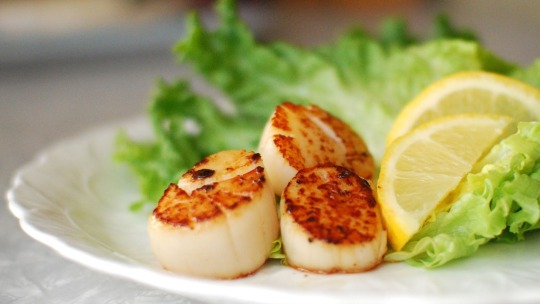
It is best to cook and eat clams the same day you buy them. Translation: It's best to plan ahead so you don't just stuff them on the fridge shelf and forget about them until you discover them a week later. (Don't even put them in water in the fridge.)
When it's time to cook, don't forget to clean them thoroughly. Rinse them well with cold water and then dry them.
Instead of frying in a pan, you can grill or bake the mussels. These methods are more likely to ensure that the clams are cooked all the way through.
But if you really love pan-seared scallops, you can let them cook in the pan longer – about 2 minutes longer per side. But keep in mind that it's really easy to accidentally overcook them, which makes them tough.
Benefits of scallops during pregnancy
Scallops can provide a nice dose of vitamin B12 and those omega-3 fatty acids that are so good for your baby's brain development. Omega-3s can even .
Mussels also contain potassium, which has anti-inflammatory properties, and potassium, which helps regulate fluid in your body, as well as other important functions such as muscle contractions and nerve signals. They contain significant amounts of trace minerals such as zinc, copper, which are important for your own good health.
Other considerations
The next time you pass the seafood aisle at the grocery store, check out the scallop inventory. You can see bay scallops, which are smaller scallops found in shallower waters, and sea scallops, which are larger and are collected from the ocean.
Whatever you choose, pay attention to the smell. If they smell funny or "fit" you a bit, put them back.
Beware of allergies. Scallops are a type of shellfish, and shellfish allergies, unlike some other food allergies, are more likely to occur in adulthood.
Cooking mussels safely at home
Read more Article : www.sunburnfeed.com
2 notes
·
View notes
Text

How to Know When You Need More Calories for Your Workouts
Most casual exercisers don’t need lots of extra food to fuel their workouts. But if you’re experiencing certain symptoms, it might be time to add more snacks to your eating plan.
Click Here to know about how you can Lose Your Weight in 21 Days
Unless you’re an elite athlete, there’s no need to be hypervigilant about how you fuel your workouts. But even casual exercise burns more calories than your body if you were at rest, which means that you might need to eat more in order to support both your workouts and your recovery.
“In a culture that emphasizes ‘eat less, exercise more,’ a lot of people are scared to eat enough [to support their workouts],” says Zoë Schroder, RDN, a nutrition coach and certified strength and conditioning specialist based in Tucson, Arizona. But ultimately, underfueling will undermine your goals and slow your recovery.
Here’s why getting adequate calories is so important, and how to know when you need more calories to fuel your exercise routine.
Why Does Your Body Burn More Calories During Exercise Than It Does at Rest?
“Our body receives the energy it needs in the form of calories, mainly carbohydrates and fat,” says Todd Buckingham, PhD, an exercise physiologist at the Mary Free Bed Sports Rehabilitation Performance Lab in Grand Rapids, Michigan. Carbohydrates break down into glucose and glycogen, while fat breaks down into fatty acids. “From there, these glucose, glycogen, and fatty acid molecules get broken down even further into a molecule called adenosine triphosphate (ATP), which is what provides energy.” (Protein breaks down into amino acids, which also break down to ATP, but this process is less efficient and isn’t used to fuel exercise.)
Click Here to know about how you can Maintain Healthy and Glowing Skin Naturally
This process, known as metabolism, happens constantly in your body, even when you are stationary, such as while sleeping in bed or working at your desk. But during exercise, Dr. Buckingham explains, the rate of ATP production increases to support your muscles (which are doing more work than usual), as well as to regulate your body temperature and sustain your increased heart rate and breathing. The more ATP you produce, the more calories you burn.
How Many Calories Do You Burn During Exercise?
According to the Centers for Disease Control and Prevention (CDC), the average 154-pound person will burn about 300 calories per hour during moderate-intensity exercise like walking, golfing, and casual cycling. The same person would burn between 440 and 590 calories after an hour of vigorous exercise like running, swimming, or circuit weight training. For a more accurate estimate on how many calories you burn during a certain activity, you can use a free Physical Activity Calorie Counter, which factors in your body weight, the type of exercise, and the duration.
Click Here to know about how you can Make a Man Fall In Love With You
How Many Calories Do You Need to Support Your Workouts?
To maintain your current weight and keep your energy levels up, you need to eat roughly the same number of calories that you burn each day. For most people who aren’t elite athletes, this happens naturally, without you having to consciously add more food into your day. “Your hunger hormone, ghrelin, ramps up in response to increased exercise as your body's way of telling you you need to eat more,” Schroeder says.
That means that if you’re only doing moderate-intensity exercise — which, remember, burns about 300 calories per hour — a few times per week, there’s probably no need to intentionally up your calories. But if you exercise at a vigorous intensity (running, circuit training, HIIT,), which burns upwards of 500 calories per hour, your ghrelin levels can actually be suppressed post-workout, according to a past study. So, relying solely on your hunger cues could leave you underfueled, Schroeder says.
Click Here to get a POWERFUL Blood Sugar Support
“Too much of a calorie deficit can cause individuals to lose muscle mass,” Buckingham says. That’s not a good thing, as muscle mass supports your health by not only making it possible to do physical tasks, but also carrying out basic functions like moving blood through your body and helping you breathe, according to the National Institute of Arthritis and Musculoskeletal and Skin Diseases. Plus, muscle mass actually helps your body burn more calories overall, even at rest, according to a past study.
If you’re trying to lose weight, a small calorie deficit is okay. The Academy of Nutrition and Dietetics (AND) recommends a calorie deficit of no more than 250 to 500 calories per day for active adults. If you notice over time that you’re losing weight and you don’t want to, you could try upping your calorie intake by a few hundred calories per day, Buckingham says. One hundred calories is the equivalent of roughly one medium banana or 1 tablespoon of peanut butter.
5 Signs You Need More Calories to Support Your Workout
Click Here to know about how you can Maintain Healthy and Strong Teeth Naturally
Look out for these common signs that you need more calories, so you can ensure you’re eating enough to support your workout routine:
1. Lasting Soreness
“If you notice that you stay sore for a long time after working out, this is a sign of nutritional inadequacy,” Schroeder says. A little bit of soreness is fine, but if it lasts for days, you might need to up your calorie intake as properly fueling is key to muscle recovery.
2. Poor Performance and Fatigue
If you notice that you’re not able to go as hard, fast, or heavy in your workouts as you used to, or if you’re constantly fatigued outside of your workouts, Buckingham says that this might be a sign that you’re not eating enough.
Click Here to know about How You Can Burn Your Belly Fat Naturally
3. Illness or Injury
Buckingham also warns that not eating enough calories to support your workouts can lead to illness and injury, as both muscle repair and immune function rely on energy and nutrients from food.
4. Dizziness
Low blood sugar happens when you don’t have enough stored energy. Called hypoglycemia, low blood sugar may result in feeling lightheaded or dizzy, according to Mayo Clinic. This is another sure-fire sign your body needs more calories than you’re taking in.
Click Here to know about how you can Lose Your Weight in 21 Days
5. Lost or Irregular Period
Over a long period of time, the combination of exercise and eating too few calories can lead to hypothalamic amenorrhea, a deficiency of the reproductive hormone estrogen. A literature review published in February 2019 in Seminars in Reproductive Medicine explains that hypothalamic amenorrhea can lead to lost or irregular periods, as well as irreversible bone loss and an increased risk of cardiovascular disease. As this is more serious than other symptoms, it’s best to speak with your doctor.
Tips for Increasing Your Calorie Intake
The good news is that upping your calorie intake is relatively simple. Schroeder recommends adding a snack or two in between meals that contains a balance of protein, carbohydrates, and fat. “Carbohydrates are your body’s main fuel during exercise, so it’s important to replenish them afterwards,” Schroeder says. “Protein is essential for building and maintaining healthy muscles, and fat is important for vitamin absorption, hormone function, and overall health.” Some easy snacks that Schroeder suggests are peanut butter and banana, fruit and yogurt, or hummus and crackers. Portion size will depend on both your goals and how many calories you’re burning during a workout. If you’re aiming to eat 300 calories, you can get that from one medium banana and 2 tablespoons of peanut butter.
If snacks aren’t your thing, or if you need more calories than snacks can provide, Schroeder also recommends adding more healthy fats to your meals, since fat has more than double the calories (9 calories per gram) compared with protein and carbs (4 calories per gram), according to the Cleveland Clinic. “Things like avocado, olive oil, and peanut butter can increase calories without adding too much additional volume,” she says. Ultimately, eat healthy, whole foods to feel energized during workouts and throughout the day.
Click Here to know about how you can Make a Man Fall In Love With You
2 notes
·
View notes
Text
No Diet Dietitian
Unveiling the No Diet Dietitian: Empowering Health through Personalized Nutrition Coaching
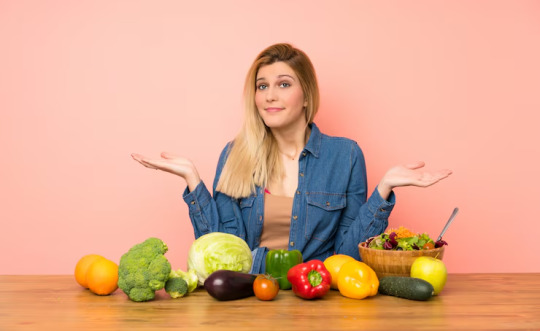
In a world where fad diets dominate the landscape and wellness trends come and go like shifting sands, finding sustainable, evidence-based guidance for your health journey can feel like navigating a maze. But fear not, for there's a beacon of light amidst the chaos – the No Diet Dietitian. Step into the realm of holistic wellness, where registered dietitian nutritionists (RDNs) stand ready to guide you towards registered dietitian health and a harmonious relationship with food.
At the heart of this transformative journey lies nodietdietitian.com, a virtual sanctuary where individuals seeking true wellness can find refuge. Let's embark on a journey through the corridors of this digital oasis and explore why it stands as a paragon of nutritional enlightenment.
Embracing Expertise: The Power of Registered Dietitian Nutritionists
Central to the ethos of No Diet Dietitian is the unwavering commitment to expertise. Here, a team of dedicated RDNs stands at the helm, armed with not only academic qualifications but also a wealth of practical experience. These professionals are not just armchair theorists but seasoned practitioners who have witnessed firsthand the transformative power of personalized nutrition coaching.
With a deep understanding of the intricate interplay between diet, lifestyle, and overall health, No Diet Dietitian's experts tailor their guidance to suit your unique needs. Whether you're striving for weight loss, navigating the challenges of menopause, or simply seeking to optimize your nutritional intake, their personalized approach ensures that every aspect of your journey is carefully curated for success.
Beyond Diets: Healing Your Relationship with Food
The very name "No Diet Dietitian" is a proclamation of rebellion against the restrictive, one-size-fits-all mentality that pervades the world of nutrition. Here, the focus is not on deprivation or draconian rules but on fostering a positive, nurturing relationship with food. It's about dismantling the barriers of guilt and shame that often accompany dietary struggles and replacing them with empowerment and self-compassion.
Through compassionate guidance and evidence-based strategies, the No Diet Dietitian team helps you rediscover the joy of eating. By reframing food as nourishment for both body and soul, they empower you to make choices that align with your goals and values without succumbing to the pitfalls of yo-yo dieting or extreme measures.
Personalized Nutrition: Your Pathway to Wellness
One of the cornerstones of the No Diet Dietitian approach is the recognition that no two individuals are alike. What works for one person may not yield the same results for another. That's why their personalized nutrition coaching is tailored to your specific needs, preferences, and lifestyle factors.
Gone are the days of generic meal plans and rigid dietary prescriptions. Instead, you'll embark on a journey of self-discovery, guided by expert insights and supported every step of the way. Whether you're a busy professional juggling multiple responsibilities or a retiree embracing newfound freedom, the No Diet Dietitian team crafts a roadmap to success that fits seamlessly into your life.
Empowering Transformation: More Than Just Weight Loss
While weight loss is often a primary goal for many individuals embarking on a wellness journey, the No Diet Dietitian understands that true health encompasses so much more. It's about reclaiming vitality, restoring balance, and nurturing a sense of wholeness that extends far beyond the number on the scale.
Through their holistic approach to wellness, they address not only the physical aspects of nutrition but also the emotional, mental, and spiritual dimensions of well-being. Whether you're seeking relief from menopausal symptoms, striving to improve your energy levels, or simply longing for a deeper connection with your body, the No Diet Dietitian team is here to guide you towards holistic wellness.

A Beacon of Hope in a Sea of Confusion
In a world where wellness trends wax and wane with alarming frequency, finding a reliable source of guidance can feel like nutritionist for a needle in a haystack. But amidst the noise and confusion, the No Diet Dietitian shines as a beacon of hope – a sanctuary of evidence-based wisdom and compassionate support.
So, if you're tired of chasing after quick fixes and empty promises, it's time to embrace a new paradigm of wellness. Step into the realm of the No Diet Dietitian and discover a path to health that's as unique as you are. With personalized nutrition coaching, compassionate guidance, and unwavering support, you can embark on a journey of transformation that transcends diets and leads you towards lasting vitality and well-being.
0 notes
Note
is there a difference between a nutritionist and a dietician or are those terms interchangeable?
Those terms are extremely not interchangeable.
In the US you've got RD and RDN, registered dietician and registered dietician nutritionist. Both of those are protected terms that require a specific degree, post-graduate education, board certification, and a supervised internship.
Nutritionist on its own, without the RD in front of it, MAY be a title with some meaning in certain locations but you have to check for local requirements.
For instance, in California there is no protection whatsoever for the word "Nutritionist" and I can legally call myself a nutritionist and start offering diet advice right now if I wanted to. I could have done that two years ago before I took even one nutrition or anatomy class. As a community college student who has NOT completed my AS-T in nutrition I have gone above and beyond what is required of nutritionists in California by taking a single 200-level nutrition class.
If someone in the US calls themself a "Nutritionist" you should hear alarm bells and they shouldn't stop until you've figured out where they practice, where they got their degree, and if their degree has anything to do with whether they're allowed to call themselves a nutritionist in the area they practice.
I did this the other day with Abra Pappa, who is a "licensed dietician nutritionist" in New York whose education *absolutely does not* give her the right to use that title because she did not get her degree from a school with an ACEND accredited nutrition program (a BS from an ACEND accredited program is the bare minimum of what you need to be an RD in the US; RDN requires an ACEND program or equivalent for undergrad (so maybe you've got a chemistry BS and then you take a bunch more nutrition specific classes before grad school) and then an ACEND program for your MS.)
143 notes
·
View notes
Text
12 Low-Sugar Fruits You Should Be Eating, Recommended by Dietitians!
Fruit Contains Sugar But It is Also Packed with Fiber and Other Essential Nutrients.
— By Deborah Murphy, M.S., RDN | April 5, 2024 | Reviewed By Dietitian Maria Laura Haddad-Garcia
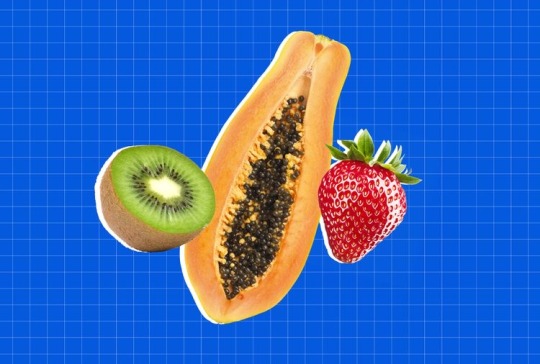
Photograph: Getty Images
Many people consume more sugar than they realize. In fact, most U.S. adults consume as much as 17 teaspoons (68 grams) of added sugar daily.1 That’s more than three times the American Heart Association's recommended limit of 6 teaspoons (25 g) of added sugar for women per day and double the teaspoon limit (36 g) set for men. What’s more, excess added sugar is linked to weight gain, type 2 diabetes and heart disease.
Brownies and apples both have sugar, so is all sugar the same? Not really. It’s important to understand the difference between natural and added sugar. Naturally occurring sugars are found naturally in foods such as fruits (fructose and glucose) and milk (lactose). On the other hand, added sugars are added to food during processing.
Although your body processes both types of sugar in the same way, it’s important to consider the whole package. Colette Micko, M.S., RDN, CDES, a registered dietitian from Top Nutrition Coaching, says, “There are many benefits to eating whole, unprocessed fruits and vegetables, which often have a moderate amount of natural sugars. Those benefits include fiber, vitamins/minerals and phytochemicals”.
Research also supports the health benefits of fruit despite their sugar content. “A recent study found there to be an inverse relationship between consumption of whole fruit and diabetes risk. The more whole fruit consumed (each 300 gm/day of whole fruit) reduced risk of developing diabetes. This may seem contrary to what most people think,” says Micko.
However, people with diabetes, for example, may need to consider how much natural sugar a food contains. “Any sugar consumption, whether it is natural or added sugars, contributes to total carbohydrates per day. With this, individuals with diabetes may need to reduce their intake of natural sugars to meet their daily total carbohydrates recommended by their registered dietitian or physician”, says Erika Barrera, M.P.H., RDN, registered dietitian and wellness educator at Leafe Nutrition.
To help you navigate your choices when it comes to fruit and sugar, we’ve ranked low-sugar fruits from lowest to highest sugar content.
1. Lemons 🍋🍋🍋 and Limes 🍋🟩🍋🟩🍋🟩
Natural Sugar: 1 Gram Per Piece and 2 Grams Per Piece
Lemons and limes are culinary staples for adding zippy brightness to dishes. They also top this list as the lowest-sugar fruits, with 1 and 2 grams of sugar per fruit, respectively. In addition to their lower sugar content, these citrus fruits are also high in vitamin C. Since snacking on one of these sour fruits alone is unlikely, try them in this flavorful One-Pan Cilantro-Lime Chicken or this refreshing Lemon Frozen Yogurt Ripieno.
2. Avocado 🥑
Natural Sugar: 1 Gram Per Piece
Although many people may assume that avocados are vegetables since they aren’t very sweet, they are actually fruit. These creamy fruits have only 1 gram of sugar for an entire piece. In addition to being lower in sugar, avocados are also surprisingly high in fiber, with around 7 grams of fiber per half of an avocado. Julie Pace, RDN from Core Nutrition Health & Wellness, says, “Adding avocados to meals can boost satiety, support weight management goals, nourish gut health, reduce risk for cardiovascular disease, and enhance diet quality.”7 Avocado makes a great salad topper, and we’re all familiar with avocado toast—but have you tried these Avocado Fries with Sriracha Aioli yet?
3. Raspberries
Natural Sugar: 5 Grams Per 1 Cup
Not only are juicy raspberries low in sugar, with just 5 grams of natural sugar per cup, but they are also low in calories and incredibly high in fiber. Just one cup provides 8 grams of fiber, which is over one-fourth of the 25-34 daily grams of fiber recommended for American adults.9 Keeping your freezer stocked with some frozen raspberries means you can blend up this Mango Raspberry Smoothie anytime.
4. Kiwis 🥝🥝🥝
Natural Sugar: 7 Grams Per Piece
“One small kiwi has just 6 grams of natural sugar, 2 grams of fiber and nearly 90% of your daily recommended value of vitamin C! They are also a rich source of carotenoids, a specific type of phytochemical, that has been shown to promote eye and skin health,” says Micko. These fuzzy little fruits also offer many other health benefits, from constipation relief to better sleep. Mango and pineapple aren’t the only fruits that can be used as a delicious taco topper; these Easy Fish Tacos with Kiwi Salsa are a delicious option for taco night.
5. Blackberries
Natural Sugar: 7 Grams Per 1 Cup
Although they have slightly more sugar than raspberries, blackberries are another great low-sugar fruit. “One cup of blackberries has just 7 grams of natural sugar and 8 grams of dietary fiber (that's a great bang for your buck). Blackberries are also a rich source of phytochemicals (plant compounds that fight disease), including those that have been shown to fight off illness, prevent chronic disease and improve memory,” says Micko.12 Level up your toast with this homemade Blackberry Jam with hints of lime and ginger. Blackberries are not just for sweet dishes either; try these Blackberry BBQ Pork Chops for dinner, and you’ll see.
6. Strawberries 🍓🍓🍓
Natural Sugar: 7 Grams Per 1 Cup Halved
Strawberries may be one of the most popular small fruits on the market. In addition to offering almost 100% of the daily value for vitamin C per serving, strawberries are also low in sugar, with just 7 grams per 1 cup of halved strawberries. The combination of fiber, antioxidants and potassium in strawberries also makes them a boon for your heart health.14 Sweet, juicy strawberries are a delicious addition to spring salads like this Strawberry-Balsamic Spinach Salad with Chicken.
7. Watermelon 🍉
Natural Sugar: 10 Grams Per 1 Cup
The lower sugar level of watermelon can be attributed in part to the high water content of this summer fruit. A 1-cup serving of watermelon has less than 10 grams of sugar and up to 5 ounces of water. Watermelon is also rich in lycopene, an oxidative stress-busting antioxidant that has been associated with a lower risk of chronic diseases like heart disease, type 2 diabetes and Alzheimer’s disease.16 Sweet watermelon and creamy, tangy goat cheese are a magical duo in this Watermelon & Goat Cheese Salad with Citrus Vinaigrette.
8. Grapefruit
Natural Sugar: 11 Grams Per ½ Piece
You may be surprised that grapefruit, which is famously tart, is so high on the list. However, it is still considered a low-sugar fruit, with just ½ a grapefruit less than 11 grams of sugar. Grapefruit is rich in vitamins A and C, two top nutrients that help support your immune system. (Especially important during cold and flu season.) Want to try adding some grapefruit to your diet? This Fennel & Grapefruit Salad makes a simple and colorful side for chicken, fish, or pork.
9. Papaya!
Natural Sugar: 11 Grams Per 1 Cup Cubed
Papaya’s 11 grams of sugar per cup of cubed papaya is much lower than that of other popular tropical fruits like pineapple or mango. Additionally, papaya is high in folate—around 54 mcg per cup or about 14% of the recommended daily value for folate.19 While you can enjoy it alone, papaya is a great addition to fruit salad. This Coconut-Cream Fruit Salad topped with a zippy dressing made from lime and ginger will have you thinking about a tropical vacation.
10. Cantaloupe 🍈!
Natural Sugar: 13 Grams Per 1 Cup Cubed
Like watermelon, it also has a high water content, so snacking on this fruit can help you meet your hydration goals. Cantaloupe is also a great source of beta-carotene, the ‘provitamin’ that gets converted into vitamin A in the body to support vision and reproductive health.20 One cup of cantaloupe has nearly one-third of the daily value for vitamin A. Try adding cantaloupe to your next salad. This Cantaloupe, Arugula & Goat Cheese Salad pairs sweet cantaloupe with peppery arugula and crunchy pistachios for a simple but flavorful side salad.
11. Oranges 🍊🍊🍊!
Natural Sugar: 12 Grams Per Piece
Although orange juice is high in sugar, whole oranges made our list of lower-sugar fruits. That’s because you need around three oranges for one cup of fresh juice. A whole orange contains 12 grams of sugar and is a good source of fiber, offering 3 grams per fruit. In addition to vitamin C, oranges are also a good source of essential nutrients like potassium and folate. If you’re looking for a flavorful weeknight dinner, enjoy these Orange-Ginger Chicken Bowls. Or enjoy a bowl of this Orange Creamsicle Nice Cream for dessert.
12. Peaches 🍑🍑🍑!
Natural Sugar: 13 Grams Per Piece
Biting into a sun-ripened, juicy and sweet peach may be the best of summer’s simple pleasures. These fuzzy fruits have less than 13 grams of sugar per piece and other nutrients like fiber, potassium and vitamins A and C. Like many fruits, peaches offer soluble and insoluble fiber. Soluble fiber keeps cholesterol levels in check, while insoluble fiber aids digestion by preventing constipation—along with many other benefits from each. Maximize your fiber intake by eating the skin of the peach. Have leftover ricotta cheese? Try this 5-minute Pistachio & Peach Toast recipe, which pairs creamy ricotta with fresh sliced peaches and honey.
The Bottom Line
There are many benefits associated with monitoring your sugar intake, but cutting back on your sugar intake can be confusing. The best approach is to limit added sugars instead of focusing too much on naturally occurring ones found in foods like fruit. Foods with natural sugars are packaged with other beneficial nutrients like fiber and antioxidants. For those with certain health conditions like diabetes who must consider their overall sugar intake, this list can help you monitor your intake. In addition, “pairing any fruit with healthy fats, such as avocados, seeds, and nuts, is a great way to reduce the glycemic index of the fruit to promote blood sugar control,” says Barrera.
#Eating 🥣 🍽️ Well#Best Healthy Foods#Healthy Eating 🍽️ 🥣#Low Sugar Fruits 🍌🍎🍉 🍊🍑🥑🍋🟩🍋🍓🥝🍈#Essential Nutrients#Full of Fibers#Dietitian | Recommended#Watermelon 🍉🍉🍉
0 notes
Text
March Horoscopes Are Here!!
Rigby Potts, RDN, Astrologers Guild of Canada
---------------------------------------------------------
Cancer - Buckle up things are about to get bumpy. Like, physically buckle up. Safety first y’all.
Leo - Hey, remember that one person you dated and brutally dumped your third year in college? They think about you every day. You are constantly on their mind. Actually, in the back of their closet they have this eerie collage of your face with the eyes scratched out. It’s kind of disturbing. Definitely don’t backslide if you can help it.
Aquarius - This month you should start eating most, if not all, of your meals in your car. Invest in one of those lap tables and maybe a bib or two. People will stare at you, but there’s just something about eating in a confined space with an audience that speeds up your digestion.
Aries - One word: metallurgy.
Capricorn - What’s your water intake been like recently? Like, if you had to describe the color of your pee using the Pantone Color System would you say you’re more “Turbo” or “Portofino”? Either way, drink up. Water, not your pee.
Gemini - Khakis are in. Stock up while you can and then be sure to tuck in your collared shirts so tight everyone can see your belly button. The more like a private school student you look, the better.
Libra - Put your phone on Do Not Disturb for the month. There’s nothing important enough to disturb your peace.
Taurus - It’s time to get really into the New York Times daily crossword puzzle. Let that be the driving force that wakes you up every morning. Solving the puzzle should be the crowning achievement of your day.
Virgo - Still looking for a mate? Start catcalling people more. If you do it enough, it’s bound to work out.
Pisces - Start listening to your dreams, especially the weird ones. Like, if you have a dream where you and your best friend get to listen to a highly anticipated unreleased pop album, you should start a rumor online about the sound and the lyrics. Let it get some traction before telling everyone you made it all up.
Sagittarius - Joan Didion used to go through people’s medicine cabinets and she was super successful. Get snoopy this month, see where it takes you.
Scorpio - It’s time to start traveling. Ohio is great this time of year.
0 notes
Text
12 Best Muscle Recovery Foods for Post-Workout Gains
What to eat—and what to skip—to fuel recovery.

What you eat affects how you feel—and at no time is that more true than post-pump. Putting your body through a tough training session causes small microtears in your muscle fibers (1). The tears will repair on their own within a few days, but in the meantime, your muscles may be sore and achy. The good news: Eating the right muscle recovery foods after your workout can cut down how long you’re aching, says registered dietitian Valerie Gately, MS, RDN, LD.
Your body converts carbohydrates into glucose. The body can store excess glucose as glycogen in your liver and muscles. During an intense gym session, your body can tap those glycogen stores to create glucose, which your cells use to power through your workout. After a workout you need to eat carbs to replace that glycogen, says Gately. “You also want a healthy dose of protein to facilitate muscle protein synthesis (MPS)—a fancy term for building and repairing muscles.”
For the biggest muscle recovery boost, you should eat both protein and carbs within 30 minutes to an hour after your workout. During this time, aim for about a 2-4:1 ratio of carbs to protein, with around 20-40 grams of protein (2).
The foods below are excellent sources of those macronutrients. They’re also packed with other vitamins and minerals to help your muscles repair faster, so you can crush your next workout.
0 notes
Text
The #1 Best Dinner for Weight Loss
We’ve all heard breakfast is essential for weight loss, but what about dinner? It’s that meal where many people fall off the rails on their weight loss journey, succumbing to cravings or overconsuming calories after a long, stressful day. But what if we told you dinner could actually help you lose weight? And no, it’s not just salad and boiled chicken. We spoke with Destini Moody, RDN, CSSD, LD,…

View On WordPress
0 notes
Text
Supplements are having a moment
A 2022 survey of more than 3,100 U.S. adults indicated that 75 percent take some form of nutritional supplement. Of those consumers, 52 percent said they took a specialty supplement, like omega-3s, probiotics, or fiber.
Johna Burdeos, RD, a registered dietitian, says a myriad of factors have contributed to the popularity of supplements, vitamins, and minerals, including the pandemic and ease of purchasing supplements online from retailers.
Still, supplements aren’t without their detractors. The industry isn’t regulated by the U.S. Food & Drug Administration (FDA).
Plus, you may wonder whether you need dietary supplements if you’re eating a well-balanced diet.
Here’s what the research and experts have to say about when it’s beneficial to add vitamins, minerals, and supplements to your diet, plus which ones to choose.
The subject is up for debate, even among experts.
“Supplements are not usually the only possible solution for most adults to achieve and maintain good health,” says Maddie Pasquariello, MS, RDN. “In fact, for many of those experiencing health problems, supplements are not usually the first line of defense that dieticians will turn to.”
Other lifestyle tweaks, like changes to diet and exercise recommendations, typically come first.
That said, supplements are recommended as a standard in some cases. In other cases, they may help fill in the gaps for nutrient deficiencies in the diet, says Stephanie Greunke, RD, a registered dietician and member of Needed‘s practitioner collective.
Common cases where providers will recommend taking vitamins, supplements, or minerals include:
pregnancy
lactation
infants receiving human milk or less than 32 oz. per day of formula
health improvement
special diets
deficiencies
Supplements may have their detractors, but some can be beneficial, particularly in specific circumstances.
Prenatal vitamin
The American College of Obstetricians and Gynecologists recommends people with uteruses should begin taking prenatal vitamins when they start trying to become pregnant and continue intake throughout pregnancy. Burdeos recommends starting three months in advance of your first attempt to become pregnant.
The CDC recommendsTrusted Source taking prenatal vitamins with 400 mg of folic acid to protect against certain birth defects.
The ACOG recommends getting at least 27 milligrams of iron per day during pregnancy, something often found in prenatal vitamins.
Burdeos says folic acid combined with iron provides benefits for a fetus.
“Folic acid helps prevent neural tube defects, which are serious abnormalities in the baby’s brain and spinal cord,” Burdeos says. “Iron helps facilitate the transportation of oxygen throughout the body. Iron helps support the proper development of the baby and the placenta.”
According to Maddie Pasquariello, MS, RDN, supplements are not typically the sole solution for most adults to achieve and maintain good health. In fact, when individuals face health issues, dieticians usually explore other lifestyle adjustments, such as diet and exercise modifications, before considering supplements as a primary intervention.
However, there are instances where supplements are recommended as a standard approach. Additionally, they can also be beneficial in addressing nutrient deficiencies in the diet, as suggested by Stephanie Greunke, RD, a registered dietician and member of Needed's practitioner collective.
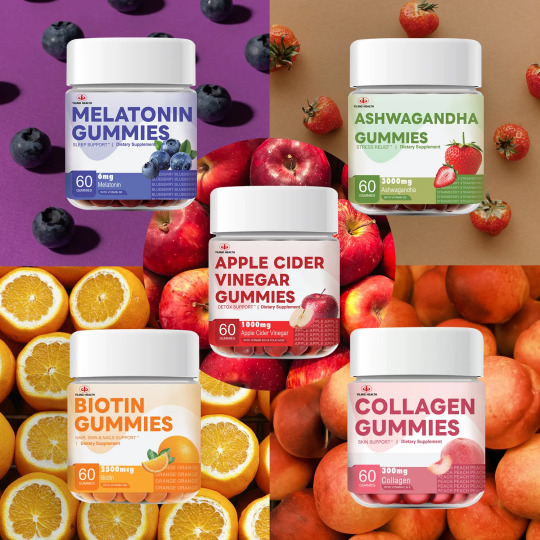
0 notes